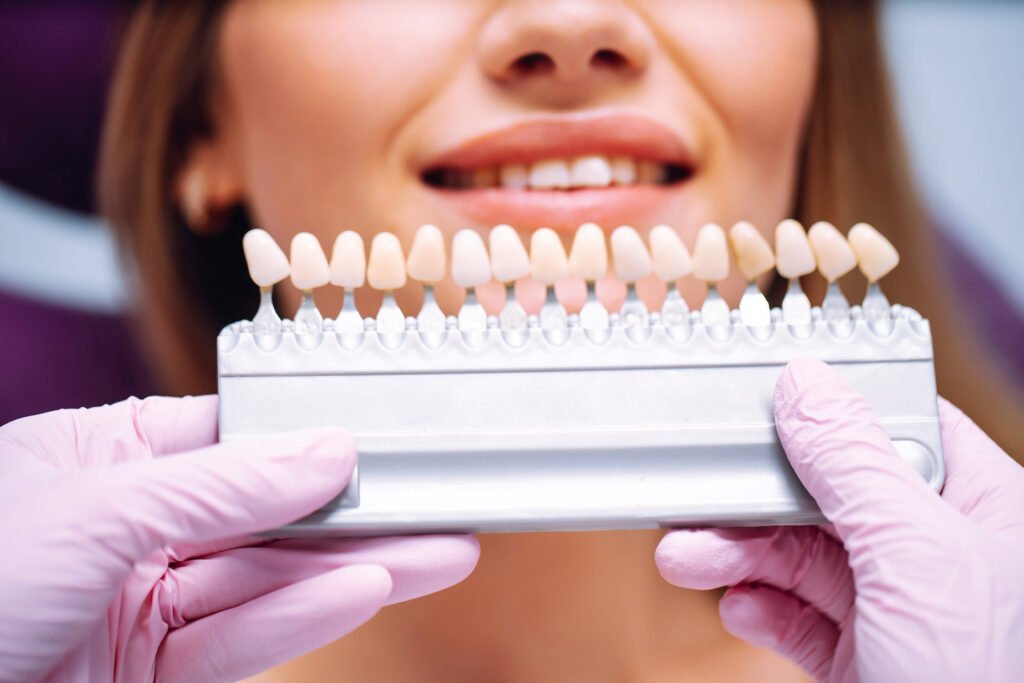Laser teeth whitening is widely regarded as a safe and effective cosmetic procedure, but medical patients—those with underlying health conditions or on medications—may wonder if they are at increased risk for side effects. The answer is yes, some side effects can occur, but they are generally manageable and can be minimized with proper precautions and professional care.
Understanding potential side effects helps you prepare, communicate effectively with your dental provider, and achieve optimal whitening results without compromising your health.
Common Side Effects of Laser Teeth Whitening
Regardless of medical history, most patients experience mild and temporary side effects, including:
- Tooth Sensitivity: A sharp or tingling sensation triggered by temperature changes or touch, usually lasting a few days.
- Gum Irritation: Redness, swelling, or mild burning if the bleaching agent contacts gum tissue.
- Throat or Soft Tissue Irritation: Occasional mild soreness if bleaching gel contacts the throat or inside of the mouth.
- Uneven Whitening: Due to natural tooth color variation or previous dental work like crowns or fillings.
These side effects typically resolve on their own or with simple post-treatment care.
Special Considerations for Medical Patients
Certain medical conditions and medications can influence the likelihood and severity of side effects:
1. Patients with Sensitive Teeth or Pre-Existing Dental Conditions
If you have enamel erosion, gum recession, or untreated cavities, whitening may exacerbate sensitivity or cause pain.
- Recommendation: Dental problems should be treated before whitening. Desensitizing gels or lower-concentration treatments may be used.
2. Patients with Gum Disease or Oral Infections
Inflamed or infected gums are more prone to irritation from whitening agents, increasing discomfort and risk of prolonged inflammation.
- Recommendation: Complete gum treatment before whitening. Laser whitening may be postponed until gums are healthy.
3. Patients with Autoimmune Disorders
Conditions like lupus or Sjögren’s syndrome can cause dry mouth, fragile oral tissues, or delayed healing, making side effects more pronounced.
- Impact: Increased sensitivity, discomfort, or prolonged irritation.
- Recommendation: Use gentler whitening protocols and consult your dentist closely.
4. Patients on Certain Medications
Medications such as chemotherapy drugs, antidepressants, antihistamines, and blood thinners can affect oral tissue health and healing.
- Impact: Higher risk of dry mouth, sensitivity, or gum bleeding.
- Recommendation: Inform your dentist about all medications to adjust the treatment safely.
5. Patients with Allergies or Chemical Sensitivities
Rarely, some individuals may have allergic reactions to bleaching agents.
- Symptoms: Swelling, itching, rash, or burning sensations in the mouth.
- Recommendation: Allergy testing or hypoallergenic alternatives may be necessary.
Rare but Serious Side Effects
While uncommon, more serious side effects can occur:
- Chemical Burns: If bleaching gel contacts gums or soft tissue for prolonged periods.
- Damage to Dental Restorations: Whitening does not affect crowns, veneers, or fillings and may cause uneven coloration.
- Increased Tooth Decay Risk: Whitening does not cause decay but can increase sensitivity that makes proper oral hygiene challenging.
How to Minimize Side Effects
- Comprehensive Dental Exam: Ensure all dental issues are addressed before whitening.
- Professional Supervision: Whitening should always be performed or overseen by a licensed dentist.
- Customized Treatment Plans: Tailored to your medical history and dental condition.
- Use of Desensitizing Agents: Before and after treatment to reduce sensitivity.
- Avoid Overuse: Stick to recommended treatment frequency to prevent enamel damage.
- Follow Post-Treatment Care: Including avoiding acidic/staining foods and using gentle oral hygiene products.
When to Consult Your Dentist Immediately
Seek dental advice if you experience:
- Severe or prolonged tooth pain
- Gum swelling that worsens after treatment
- Signs of allergic reaction (rash, itching, swelling)
- Difficulty eating or drinking due to sensitivity
Final Thoughts
Laser teeth whitening is generally safe, even for medical patients, when performed responsibly. However, certain medical conditions and medications can increase the risk of side effects or require adjustments to the treatment approach.
Open communication with your dentist about your health status, medications, and sensitivities is crucial to ensure safe, effective whitening with minimal discomfort.




